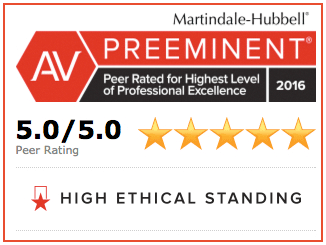Is Your Personal Injury Settlement Taxable?

If you suffer an injury in an accident through no fault of your own, it is only right that you receive compensation for your injuries and lost wages, as well as any emotional distress you suffer. What happens when you agree to a large settlement or win a significant jury award? Do tax officials consider this as an income? Or do they consider it merely recompense for the injuries you received? Is your personal injury settlement taxable?
Most Injury Settlements and Jury Awards Aren’t Taxable
In the majority of cases, no, your personal injury settlement will not be subject to taxation in New Jersey. But just because in most cases you won’t have to pay taxes on a settlement doesn’t mean there are no instances where taxation is likely. What is – and isn’t – considered taxable depends on the judgment of the Internal Revenue Service (IRS).
The IRS does not consider personal injury awards to be “income”. Therefore, the IRS does not tax settlements or jury verdicts which compensate a person for their injuries including:
- Pain and suffering
- Emotional distress
- Lost wages arising from physical and emotional injuries (however, lost wages paid under wrongful termination/employment claims are taxable)
While this sounds good – after all, the aim of most settlements is to cover these items – there are exceptions to these three items being tax-free.
 When are Settlements and Jury Awards Taxable?
When are Settlements and Jury Awards Taxable?
There are numerous exceptions where the IRS deems it acceptable to charge taxes on any settlements or awards relating to physical and emotional injuries or lost wages. If, for example, a person receives a tax benefit related to their claim, the IRS considers that to be “double-dipping”. This means that you already received compensation for those injuries and anything on top of those benefits is income that is subject to taxation. Additionally, IRS considers an income any interest which you receive from a settlement and is therefore not tax-exempt.
Punitive Damages
Punitive damages are reasonably rare in personal injury claims, but they are not impossible. How though, are they handled for taxation purposes? The IRS considers a punitive award as income and therefore subject to taxation. These damages are taxed as such because their intention is to punish the negligent party, rather than compensate the injured person.
Settlement Tax Issues are Confusing – Talk to an Experienced Personal Injury Attorney
When it comes to taxation, the IRS always tries to provide taxpayers with the correct information. Unfortunately, this information can be challenging to navigate, making mistakes such as the underpayment of tax common. If you get an injury in an accident, always make sure that you speak with an experienced personal injury attorney. A knowledgeable lawyer can work with you throughout the life of your claim and ensure the correct handling of all tax situations.
If you or a loved one is injured, contact the New Jersey personal injury attorneys at Rossetti & DeVoto right now. At Rossetti & DeVoto P.C., our knowledgeable team is expert in all facets of personal injury cases. We work tirelessly for our clients and aggressively fight for their rights to get them the best result. Contact us today at 844-263-6260 for a free consultation.

 When are Settlements and Jury Awards Taxable?
When are Settlements and Jury Awards Taxable?







